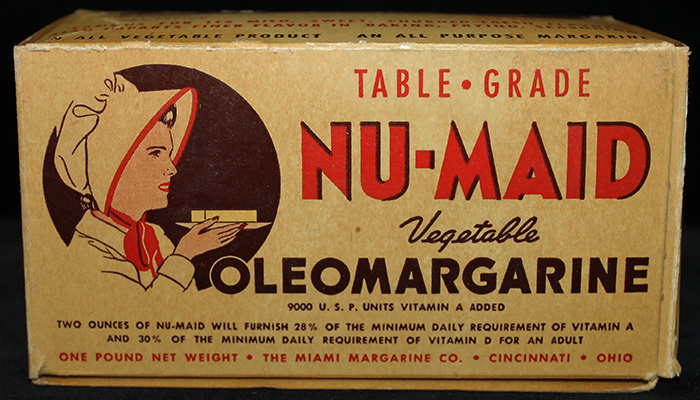Todays electronics is fast. Imagine how much natural resources could be saved if manufacturers delivered software support until device is truly unusable due to hardware limitations.
This post is being written on 3 years old flagship killer that has never dropped any frame, reached 0% battery or crashed but wont get system updates anymore because…
seemingly 3 years old 7nm flagship SoC is too weak to be used for next decade?
🇪🇺🙏
Let’s take that one step further, imagine if once software support ended for a device you could simply install an alternate open source (libre) operating system and keep on using the hardware you paid for. On the computer side you can still use desktops as old as 2 or even 3 decades with Linux. I would take it a step further and argue that you don’t own your devices at all if you cannot install an alternate operating system.
At least for some android phones this is already possible with Lineage OS.
Yes, also Graphene OS for Pixel phones, Murena, and some others try to make a viable alternative OS.
Part of the problem is the chip manufacturers. They provide precompiled device drivers for one version of one kernel only, no source, and refuse to update them ever again. It can be a bit difficult to update the rest of the software stack when there’s no way to shore up the foundations. Device manufacturers need to start insisting on updated drivers and/or provided driver source code before they buy the chips to put in their phones, tablets, and other systems.
Good luck on that.
A lot of it is still on the phone manufacturers. If Fairphone can provide software support for their 2015 model 8 years later, then I have a hard time believing that a company with a 32 billion USD net income cannot provide more than 3 years of software updates. Looking at you, Samsung!
https://support.fairphone.com/hc/en-us/articles/11351328932497-Update-to-the-latest-Fairphone-OS
Oh, there’s undoubtedly plenty of blame to go around. Samsung is one of the few manufacturers large enough that they might be able to apply some pressure to Qualcomm and its ilk, and they aren’t doing it, or at least aren’t doing it enough.
Fairphone also deliberately chose an industrial variant of the Snapdragon 778G just so they could get by the issue mentioned by nyan.
Samsung also manufactures their own memory and chipset. They could provide long support for those chipset if they wanted to, but that would means giving up short term profit. When smartphone sales truly stagnates and people no longer buy a new phone after 2-3 years anymore, manufacturers may consider this strategy to differentiate from their competitors.
How is company X supposed to sell you model 2.0? 3? 2.0 RepairCare?
Planned obsolescence. Profits. Shareholders.
I think much of this issue is created directly by the contracts created the phone companies. For example, I needed a new phone after my old Motorola failed to boot. It was in pretty bad shape with a cracked screen and mangled charging port, so a new phone was in the cards. I had expected to get another cheaper Motorola, but the added fees to switch would’ve doubled the cost of the phone. Instead, I opened a new line and got a Pixel 7 for free (plus headphones), and kept my old phone active for a single month.
It’s a finance thing for most ultimately. $400 to get a new Motorola, or $55 to get a new Google Pixel. The contracts are rigged to get you setup with a mainstream phone, so you’ll consider upgrading to the next release for a discounted price.
I changed from a pixel 6 that I loved to a pixel 8 (I love it too) only because changing phones for a new contract gave cost me 20$ less and gave me 60Gig of data instead of 20. So I got a better phone, more data and a cheaper bill for changing to a new phone.
If I wanted to keep the pixel 6 I needed to pay 168$ and keep my old contract.
Why can’t I get the same deal without changing.
P.S. I’m in Canada. Was 76$ a month now is 55$.
They also need to be fully recyclable.
Weirdly this was the biggest reason I switched from Android to iPhone. I’d used Android since the OG Motorola Droid, and pretty much upgraded every two years as soon as the contract allowed because after two years the phone would be buggy and unresponsive. Then I got a Google Pixel 2 and it was the first phone I’d had where it was still fine after two years, so I kept it. Even after 3 years it was still fine and I had no reason to upgrade, except it stopped receiving security fixes. My wife’s ex-husband is a professional hacker and his default mode is extortion, so trying to keep things up to date on security is important. Still, I was pretty disappointed that I was being pushed into buying a new phone for no reason other than Qualcomm and Google not wanting to support it.
Around the same time we had to get my stepdaughter’s iPhone repaired. It struck me that here she was using an iPhone 6 that was 6 years old at the time but still had parts available and was still getting software updates from the manufacturer. It didn’t have all the latest and greatest hardware but it was still perfectly functional and there was no need to upgrade unless we wanted to. As expensive as phones were getting, it felt harder and harder to justify buying something that was starting to cost $6-800 new and then have to do it again 2-3 years later. Was it ideal switching? No, and there were things I missed from Android, although they’ve slowly caught up (Apple finally added support to change the default notification sound just last year), but it works and at least I feel like I’m not wasting money on hardware that’s designed to break and go to a landfill in two years.
You do you, I couldn’t live without the customisable and control I get with Android.
i just started wearing an onion on my belt again
I wish the knowledge and methods to flash devices with new/modified firmware was a common standard i take good care of my tech, so much beautiful technology in perfect condition just sitting there unusable because its software is to old.
Alternative ROM?
Very good alternative but this pushes the responsibility on the end user. Manufacturers should instead adjust their destructive approach on hardware and software. Our phones are built to break at the first fall and now we all have to buy cases to protect them, and if they survive long enough well it’s the software that becomes obsolete… how silly is that
Do you think things like Fairphone are a step in the right direction?
They are. Pixels are also good for longevity and alternate ROM-s.
The problem is budget phones—people who can’t afford to pay 600€ for a phone are left with devices that are obsolete in 2 years and no custom ROM-s even when the bootloader can be unlocked. The ROM community mostly consists of enthusiasts who are generally not interested in budget devices.
Case in point: my Poco X4 Pro. Excellent hardware (5G, 120Hz OLED, headphone out and SD card slot, IR blaster), cost me only 300€, but no LineageOS, CalyxOS or /e/ OS support unlike the older X3 Pro because it was not as popular among the enthusiasts.
Second-hand market is also very situational, eg in my country Pixel phones are not popular and thus the second-hand market is filled with mostly Samsung and some iPhones.
I’ve searched your phone on xda and it has some ROMs which support it. Not official LineageOS though 🥲
There are some, but I’m not willing to install a random ROM from who-knows-where breaking who-knows-what functionality on my only phone.
I see, fair.
cries in not unlockable Asus bootloader
To solve this, I’d ask: What can we do to incentivize graceful degradation instead of planned obsolescence?
Planned obsolescence really isn’t as big of a thing as people think it is. The problem is that people want the newest shiny thing, and they don’t want to pay premium prices for something that’ll last a long time.
So, manufacturers will use parts that are less durable to fit a price point. It’s kinda like server hardware vs consumer hardware.
Now, development has even less to do with planned obsolescence. Development is expensive, and if only 1% of your users is using V8 while 99% are on v12, it doesn’t make sense to keep supporting V8.
This is even a thing with open source software. For example, even though RHEL7 doesn’t hit EOL until June, many software vendors have already stop providing updates (curl, for example).
Same thoughts. I’m surprised how many power is casually laying in my hand. That it can play stuff like Genshin, PUBG, Fortnite. It couldn’t be even thought off when Fruit Ninja, Angry Birds released to sell us the first fun of capacitive screens, gestures. These resources are to last years.
The only objection is I just don’t care about having the same phone, getting used to it anymore for they all look the same, I occasionaly take other person’s phones at work and when eating out. They are now easier to jump from one device to another. And while it’s good, maybe, that you aren’t chained to it, it warms you up to buy another piece of plastic. My older Symbian devices were something to adjust to, and honor, and cry over they eventual death, and that phone? I can go to the store to buy another and I won’t even sigh. They are ideal portals into the web with no personality besides a phone case. And it’s not that fun.
I’d honestly sell some belongings to have a modern specs phone with a keyboard and a linux. These awkward, heavy beasts of the past were so damn cool. Writing just isn’t the same with touch-screen, as well as emulation. If there was one, I’d have bought replacement batteries and have used it for decades.
We could have taken that approach with cars as well. Who needs more than 20HP anyway? We should have just kept repairing the Model T and been happier with what we have, right?
Maybe the EU 🇪🇺 should legislate that German car companies should cease to produce new cars and instead commit to repairing what they have already produced, for free presumably?
Take your disgust at this post and now apply it to what you’re talking about 😂.
This response is nonsensical. Auto manufacturers support their vehicles for decades after a car is made.
Your car gets serviced for free for decades after you’ve bought it? Damn I’ve been ripped off all these years.
You pay to get your car serviced but with your phone you don’t even have that option. When the manufacturer drops support, you don’t even have the option to pay for prolonged software support.
Car manufacturers also tend to make parts available for decades. They tend to be pretty reasonably priced too.
And there is a large selection of different manufacturers that can make these parts once the OEM stops. Try to find a company that is making and stocking a 5 year old phone display, camera module, etc
That would be a fair comparison if i could replace my screen or camera for free. You pay for the parts and the labor either way.
To be fair, cars can be used indefinitely if maintained. No blackberry from decades past can function on today’s cell and Internet networks effectively, even if maintained.
Who needs more than 20HP anyway?
20 hursepurses is maybe pushing it, but 30 to 50 kW would actually be plenty if we kept our cars lightweight and aerodynamically efficient instead of insisting on 3-ton ugly boxes with the frontal area of a house.
Hell, for a single-person lightweight (<40 kg empty weight) electrical vehicle that is expected to go no faster than 30 km/h (often legally limited to 25km/h here in EU) and requires no license to operate, 250 to 300 W is more than enough.
Lotus had it right.
Hey, how am I supposed to compensate for my immeasurably small penis with such vehicles?
Heh, I always find someone pushing 30 km/h with one’s own muscles, not caring about weather going through rain, cold and heatwaves while carrying what they need to carry far more hardcore (won’t use the word “masculine” because people of any gender do this) than someone sitting in a heated seat in climate-controlled box that moves forward without any effort from the user and not even requiring significant driving skills in the age of automatic transmission, traction control and all the other electronic assists (ABS is fine and recommended)🙃
- “Hey, look at this bike, it cost 2000 $!”
- “Wow, really?”
Cars are heavier with long noses because of crumple zones and stronger cabins that are exponentially safer for passengers than older cars. They’re also far safer for pedestrians and bicyclists. Lotus makes cars that are impractical for any amount of cargo (you’re not doing your grocery shopping in it) and their crash tests show they’re far less safe for drivers and pedestrians. 50kW couldn’t safely accelerate even a tiny 1 tonne vehicle onto any highway.
We are OK with sitting in our cars hours on end, day by day. That’s where the problem starts…
Edit: my smaller car is 54 KW, I went on the highway with it. Doable. Not fun. High consumption.
For a lot of people, particularly in large, spread out countries there’s no choice. Someone has to deliver freight, some people have to commute to work, etc.
OP is talking about software updates, and you are talking about one of the few products nowadays where decades old models can be maintained without excessive cost.
In most countries the Model T is exempt from any kind of safety inspection and classes of tax, making it an excellent option for the maliciously compliant engineer 😁
Maybe the EU 🇪🇺 should legislate that German car companies should cease to produce new cars and instead commit to repairing what they have already produced, for free presumably?
Why not? While they’re at it they can start making buses and trains.
Mercedes in particular absolutely nailed bus design with their Citaro, then promptly proceeded to make a hideous looking successor 🤢 perhaps their car designers can fix that
Mercedes has been screwing the customer for quite some time already. Their old cars are cute tho and easy to get fixed.
You have very confidently missed the point of the post.
Do they stop making oil and air filters for your car after 3 years? Do the seatbelts artificially refuse to connect after 3 years? Lol
Not equivalent.
















